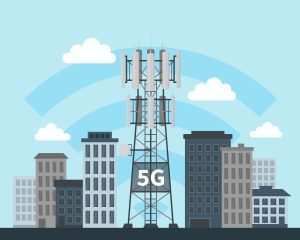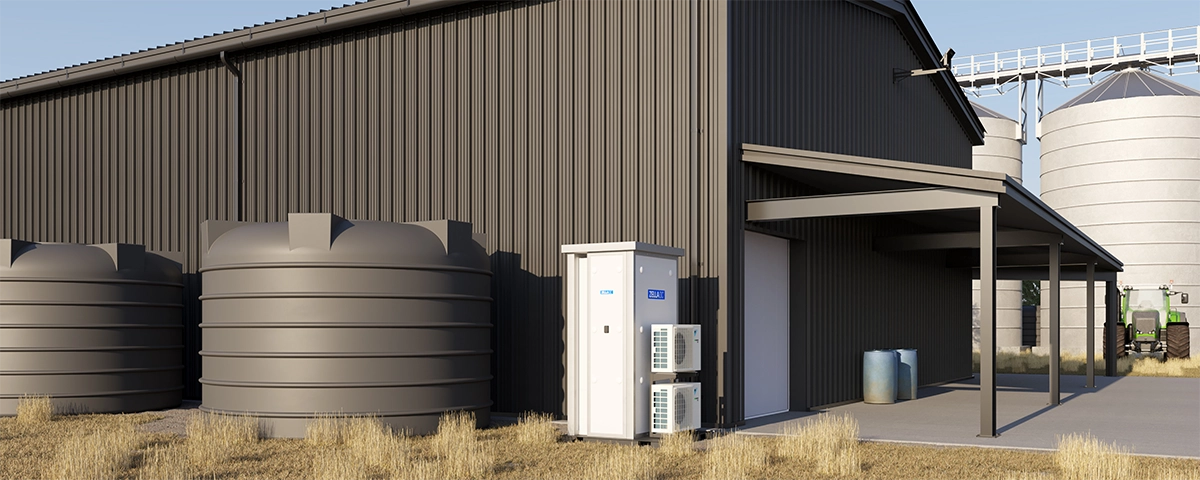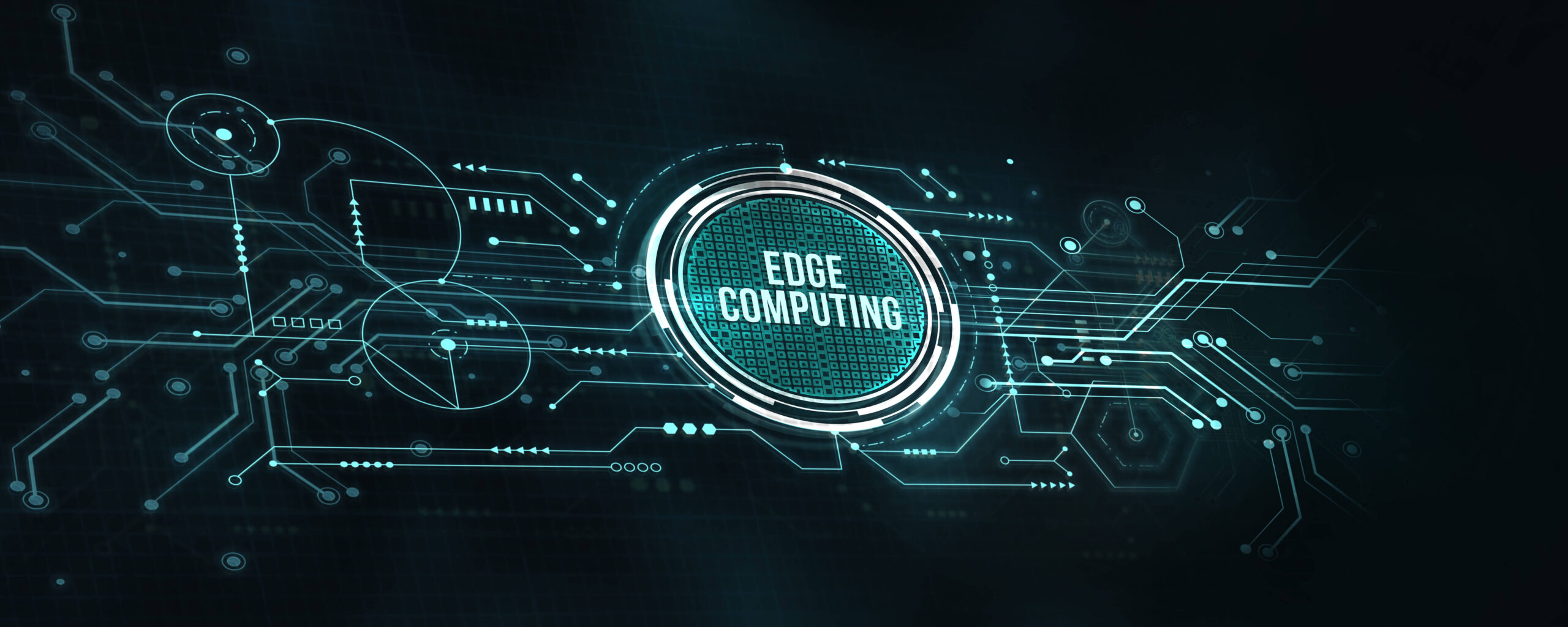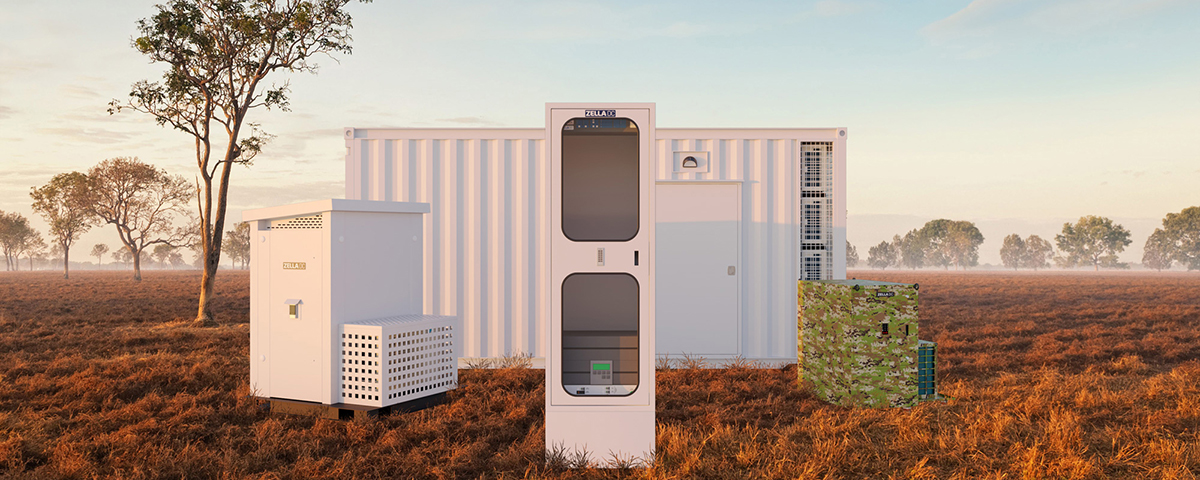Edge computing has become increasingly important in recent years partly due to the proliferation of Internet of Things (IoT) devices generating more and more data. Processing data closer to the source, rather than in centralised data centres, reduces latency and improves response times. One solution for achieving this is through micro data centres (MDCs), which are small, self-contained data centres that can be placed closer to the data source.
According to a report by MarketsandMarkets, the global micro data centre market is expected to grow from $3.0 billion in 2020 to $6.5 billion by 2025, at a CAGR of 16.6%. This shows that there is a growing demand for edge computing solutions, and MDCs are a key component in meeting that demand.
Outdoor micro data centres: a game changer
In the world of data storage and analysis, outdoor micro data centres (MDCs) are a game changer. These self-contained, weatherproof units can be placed just about anywhere and process data right where it’s needed, reducing latency and offering increased portability. Here are some of the main benefits of outdoor MDCs:
- Can be placed virtually anywhere: outdoor MDCs can be sited right where data is generated, even in the remotest of regions.
- Reduced latency: by processing data right at the heart of the action, latency is minimised or even eliminated.
With Zella Outback, Zella DC’s outdoor micro data centre range, you will also benefit from:
- Security: advanced cyber security and robust physical protection for your data and assets.
- Scalability: Zella Outback is easily scalable – just add more units when needed.
- Portability: easy to transport even to remote locations and easy to relocate if needed.
- Smart technology: pre-programmed with customisable alarms and automations.
- Efficiency: reduced energy consumption = reduced power bills and carbon emissions.
Industries benefitting from outdoor micro data centres
Mining is one area that’s experiencing an explosion in MDC use. With the remote nature of the sector and the increasing uptake of smart technology, on-site MDCs mean data can be stored at the source and analysed in real-time. Add in the ability to withstand harsh climates, AC/DC operation (including being hooked up to renewable energy sources), and hassle-free maintenance, and it’s easy to see why national and international mining operations are discovering how interior and exterior MDCs can positively impact baseline profits.
is one area that’s experiencing an explosion in MDC use. With the remote nature of the sector and the increasing uptake of smart technology, on-site MDCs mean data can be stored at the source and analysed in real-time. Add in the ability to withstand harsh climates, AC/DC operation (including being hooked up to renewable energy sources), and hassle-free maintenance, and it’s easy to see why national and international mining operations are discovering how interior and exterior MDCs can positively impact baseline profits.
Smart farming is already big business. Once again, the remote location and vast expanses of arable and livestock landscapes mean that micro data centres represent a valuable resource in data analytics. Weather stations, crop monitoring, intelligent lighting and watering systems, vertical farming, indoor cultivation – the list is endless. Outdoor MDCs, in combination with artificial intelligence algorithms, can maximise growth potential and be located right where they’re needed. They can also help increase efficient energy use, something that’s vital in today’s volatile environmental landscape.
is already big business. Once again, the remote location and vast expanses of arable and livestock landscapes mean that micro data centres represent a valuable resource in data analytics. Weather stations, crop monitoring, intelligent lighting and watering systems, vertical farming, indoor cultivation – the list is endless. Outdoor MDCs, in combination with artificial intelligence algorithms, can maximise growth potential and be located right where they’re needed. They can also help increase efficient energy use, something that’s vital in today’s volatile environmental landscape.
 With the global infrastructure of 5G being implemented at full speed, the need for edge computing within the communication industry is crucial. IoT devices are increasing exponentially, and with this, the amount of data being generated, along with a need for its instant analysis. Traditional networks – even with increasing bandwidth – suffer from latency. Removing an element of this burden with edge computing storage facilities, such as external MDCs, is proving an essential piece in the burgeoning communication jigsaw.
With the global infrastructure of 5G being implemented at full speed, the need for edge computing within the communication industry is crucial. IoT devices are increasing exponentially, and with this, the amount of data being generated, along with a need for its instant analysis. Traditional networks – even with increasing bandwidth – suffer from latency. Removing an element of this burden with edge computing storage facilities, such as external MDCs, is proving an essential piece in the burgeoning communication jigsaw.
 As infrastructures are being upgraded to service the many ways IoT devices will benefit a variety of government initiatives, the use of MDCs will become more necessary. Traffic management, self-driving vehicles, crisis management, and smart cities are just some examples of where edge computing and outdoor MDC technology will need to be implemented for local and national government ambitions to be fully realised.
As infrastructures are being upgraded to service the many ways IoT devices will benefit a variety of government initiatives, the use of MDCs will become more necessary. Traffic management, self-driving vehicles, crisis management, and smart cities are just some examples of where edge computing and outdoor MDC technology will need to be implemented for local and national government ambitions to be fully realised.
 While these are specific sectors set to benefit from using Micro Data Centres out in the elements, another important area to look at is where space is at a premium. Real estate is expensive, making the sacrifice of swathes of indoor areas to house traditional data centres is no longer viable in many situations (see retail, education, healthcare, etc.). Add in the environmental cost of keeping large banks of data storage cool, plus the years they take to build, and it’s no wonder that businesses of all sizes are waking up to the power of the MDC.
While these are specific sectors set to benefit from using Micro Data Centres out in the elements, another important area to look at is where space is at a premium. Real estate is expensive, making the sacrifice of swathes of indoor areas to house traditional data centres is no longer viable in many situations (see retail, education, healthcare, etc.). Add in the environmental cost of keeping large banks of data storage cool, plus the years they take to build, and it’s no wonder that businesses of all sizes are waking up to the power of the MDC.
Conclusion
Outdoor micro data centres are a game-changer in the world of data storage and processing. With the ability to be placed just about anywhere, these units offer reduced latency, increased portability, and simplified maintenance.
Zella Outback, Zella DC’s outdoor micro data centre, takes this concept even further with added security features and remote operation. With the potential for increased efficiency and decreased environmental impact, it’s clear that this technology is here to stay. Get in touch to find out how edge-ready outdoor micro data centres can benefit your business.






